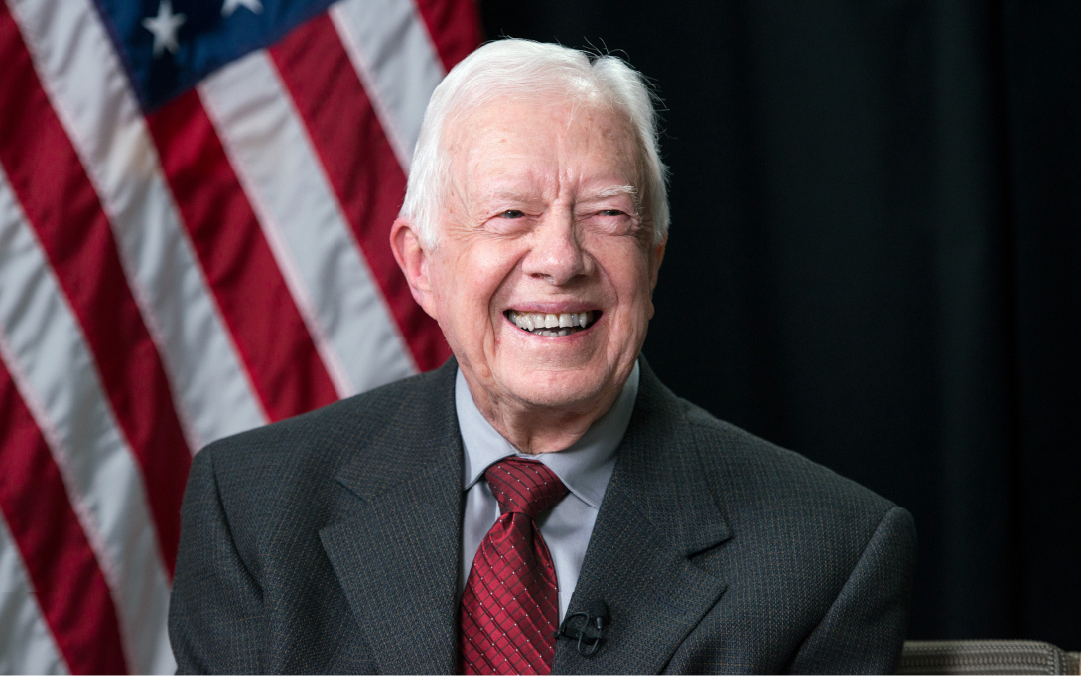Former U.S. President Jimmy Carter, 2014. (Image source: Place: Austin, Texas; Date: 2014; Credit: LBJ Library)
Reference:
Hollinger, A. (2024, December 29). President James Earl “Jimmy” Carter (1924–2024). United States Holocaust Memorial Museum. https://www.ushmm.org/information/press/president-jimmy-carter
President James Earl “Jimmy” Carter (1924–2024)
The United States Holocaust Memorial Museum mourns the passing of President James Earl “Jimmy” Carter, whose presidential commission recommended establishing the United States Holocaust Memorial Museum.
In 1978, President Carter created the President’s Commission on the Holocaust and charged it with the responsibility to submit a report “with respect to the establishment and maintenance of an appropriate memorial to those who perished in the Holocaust.” The commission, chaired by Holocaust survivor Elie Wiesel, included survivors, civic and religious leaders, historians, and members of Congress. It recommended establishing a “living memorial” that would ensure Holocaust history and its timeless lessons are taught in perpetuity. In accepting the recommendation of the commission’s report, President Carter said, “Out of our memory and understanding we must forge an unshakable oath with all civilized people that never again will the world stand silent, never again will the world look the other way or fail to act in time to prevent this terrible crime of genocide.”
As a result of President Carter’s leadership, in 1980 a unanimous act of Congress created the United States Holocaust Memorial Council to lead the nation in an annual commemoration of the victims of the Holocaust and build the United States Holocaust Memorial Museum.
Ambassador Stuart E. Eizenstat, who served as White House Domestic Affairs Advisor to President Carter and now chairs the Museum’s governing council, said, “The nation has lost a Nobel Prize-winning president who did so much to advance the memory and lessons of the Holocaust for our country and to support human rights abroad. Following the neo-Nazi demonstrations in Skokie, Illinois, the home of many Holocaust survivors, President Carter enthusiastically agreed to my recommendation and that of White House Counsel Robert Lipshutz to establish the President’s Commission on the Holocaust, chaired by Elie Wiesel. The president made possible the creation of the Museum by obtaining unanimous Congressional support and signing the legislation. We shall never forget his pivotal role. Without President Carter, the Museum would not exist Our nation and the world owe him an enormous debt of gratitude for this singular contribution to humanity.”


